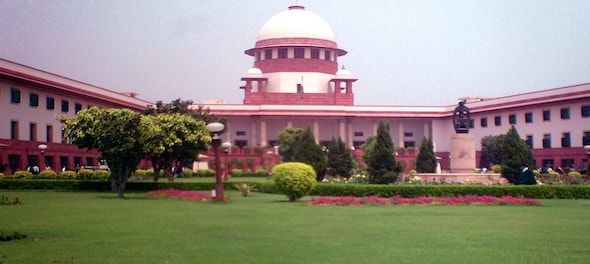
The Supreme Court on Wednesday ruled that the office of the Chief Justice of India (CJI) comes under the ambit of the Right to Information (RTI) Act. The reason is obvious; the office of the CJI is a public authority and hence it comes under the RTI. "Transparency does not undermine judicial independence," Justice Sanjiv Khanna said. The five-judge Constitution bench was headed by Chief Justice Ranjan Gagoi. The other members of the bench were Justice Sanjiv Khanna, Justice NV Ramana, Justice DY Chandrachud and Justice Deepak Gupta.
2010 Delhi High Court judgment
Earlier, in 2010, in a landmark judgment, the Delhi High Court had held that the office of the CJI comes within the ambit of RTI. The Delhi High Court observed that judicial independence was not a judge's privilege, but a responsibility cast upon him. The then CJI KG Balakrishnan had earlier opposed the disclosure of information relating to judges under the RTI. This was initiated by one RTI activist SC Agarwal and was represented by his lawyer Prashant Bhushan. This was argued well by the lawyer for his client SC Agarwal. During the argument stage, the lawyer had highlighted the reluctance of the judiciary in sharing the information or coming under the RTI. Judicial independence was not a privilege but a responsibility cast on judiciary. The lawyer had also accused the judiciary of reluctance to share the information with the public. Prashant Bhushan was successful in getting a favourable order from the Delhi High Court much to the chagrin of the then Chief Justice of India.
Appeal in Supreme Court
The judgment from the Delhi High Court was appealed in the Supreme Court in 2010. The Supreme Court secretary general and its central public information officer had taken it to the apex court. The bench headed by the CJI heard the appeal and had expressed that it does not want opaqueness and wants transparency in the system. Justice Sanjiv Khanna read that it is in the best interest of the public that transparency should be there in the CJI office. The judicial independence will not be under threat if there is any transparency.
RTI and privacy
The Right to Information and the Right to Privacy are two sides of the same coin. They are interdependent and none can precede the other. While the judgment was in favour of sharing the information under RTI, they also wanted it to be balanced with Right to Privacy. Judicial independence and accountability will go hand in hand. However, they also had highlighted the caveat that RTI should not be used as a tool of surveillance. Judges discharge a public duty and cannot work in insulation. Judges cannot wear the garb of privacy to protect themselves. However, they cautioned that the disclosure should be taken up on a case-to-case basis based on merits.
Supreme Court collegium to be made public
There was also a query if the Supreme Court collegium in the appointment of judges or lawyers can be made public under RTI. The apex court ruled that it should also be decided on a case-to-case basis and cannot be generalised. The disclosure should keep in mind the larger public interest. However, disclosure cannot be made when there is threat of breach of confidentiality obligations. Hence, there should be a proper balance between the RTI and the Right to Privacy keeping the larger public interest in mind.
K Satish Kumar is a keynote speaker, author, the Global Head of Legal and Chief Data Protection Officer of Ramco Systems. Among the many awards he has received, the coveted are “Top 50 Legal Leaders 2019” by Legal IP Gorilla in Singapore, “GC PowerList India 2018” by London based Legal 500 , “Legal Counsel of the Year -2018” by INBA. He is actively involved in many pro bono activities through Chennai Lawyers. The author can be reached at getksk@gmail.com. The views expressed are personal.
Read his columns here.
First Published: Nov 15, 2019 12:37 PM IST
Check out our in-depth Market Coverage, Business News & get real-time Stock Market Updates on CNBC-TV18. Also, Watch our channels CNBC-TV18, CNBC Awaaz and CNBC Bajar Live on-the-go!


Odisha's new CM — who is Mohan Charan Majhi and what prompted the BJP to choose him
Jun 13, 2024 2:54 PM
Election 2024: 504 out of 543 newly-elected MPs are ‘crorepatis’ – Check 10 richest members in 18th Lok Sabha
Jun 12, 2024 9:55 PM
BJP to start nationwide organisational rejig, new party president to be elected soon
Jun 12, 2024 9:31 AM
New Lok Sabha Speaker to be elected in special 8-day session: Report
Jun 11, 2024 6:28 PM

